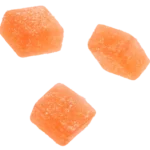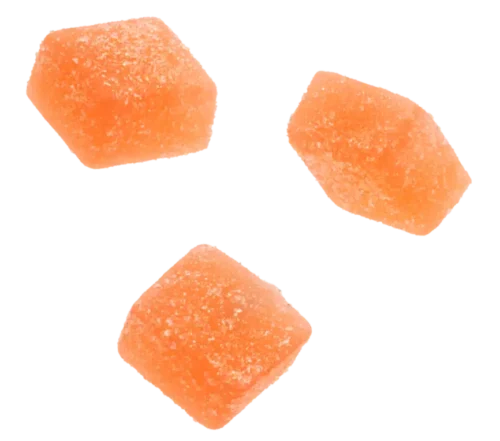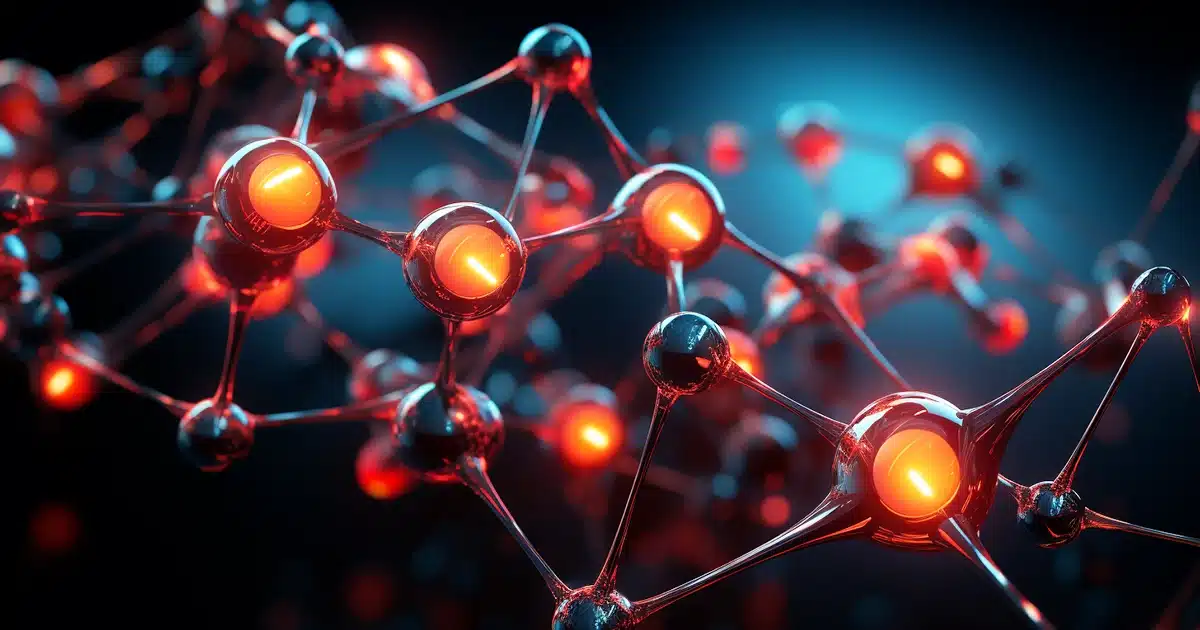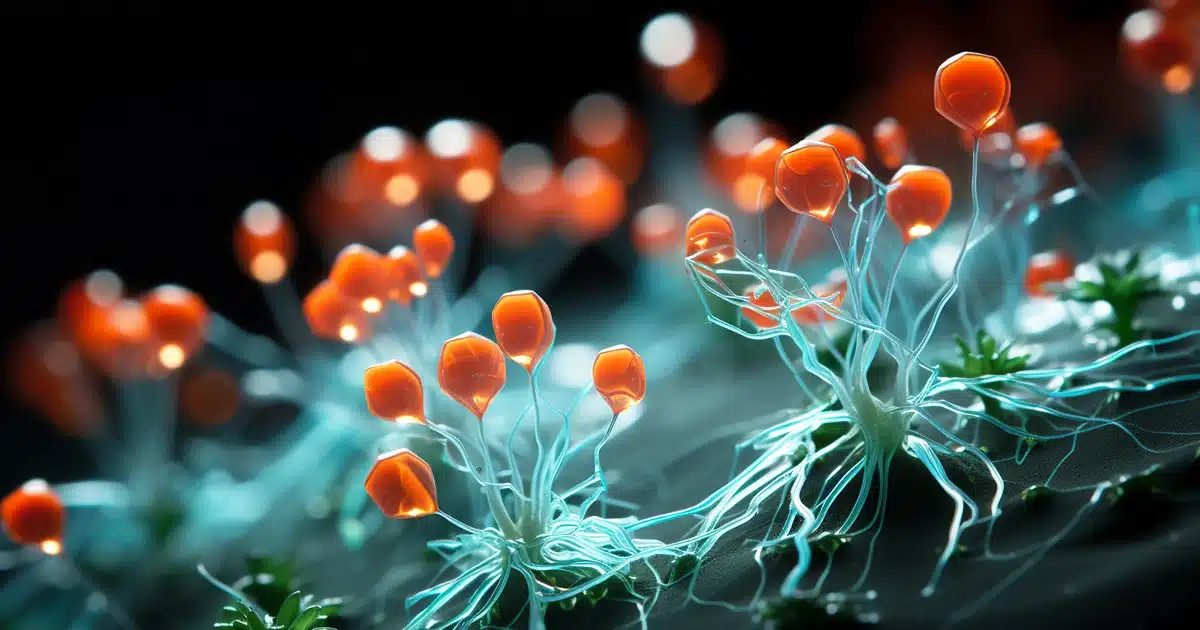What Is THC?
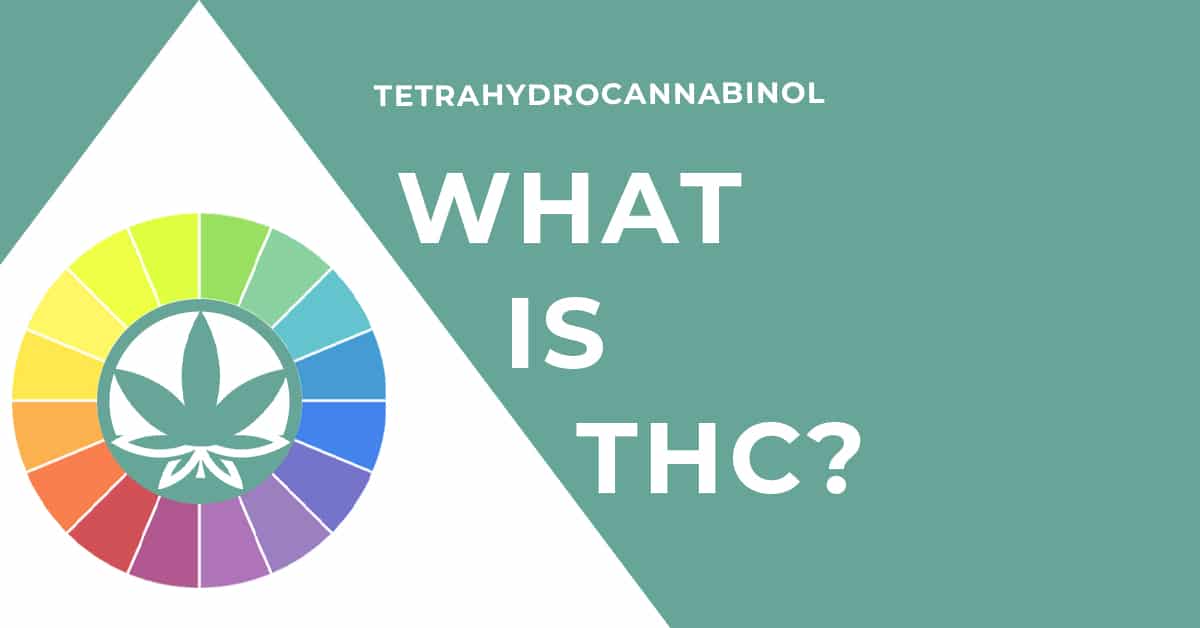

Christopher Visser
Multi-Cannabis Business Owner
Christopher Visser, the Founder and CEO of Cannabidiol Life and THCGummies.com, is a distinguished figure in the CBD industry, recognized for his pioneering contributions since 2016. With over 120 published articles, Christopher has become a reputable cannabis researcher, writer, and author. He's built two prosperous cannabis ventures that collectively generated millions in annual sales. His in-depth analysis of numerous cannabis studies, collaboration with medical professionals, and personal engagement with thousands of customers underline his expertise and commitment to advancing cannabis understanding daily.
-
 Written By:
Christopher Visser
Written By:
Christopher Visser
- Published:
- Updated: February 8, 2024
- Too Quiet, Light Up The Convo!
Tetrahydrocannabinol (THC) is the most well-known psychoactive and psychotropic chemical compound found in cannabis plants. It's a naturally occurring compound that has been used medicinally and recreationally for centuries. In this Comprehensive Guide to THC, you will learn more about Tetrahydrocannabinol than the majority of all mankind.
Table of Contents
What Exactly Is THC?
THC is the shortest acronym used when referring to Δ9-tetrahydrocannabinol (Delta-9 THC). Delta-9-tetrahydrocannabinol, commonly known as THC, is a particular cannabinoid, more specifically, a phytocannabinoid, present in the cannabis species.
Learn more about the difference between cannabinoids and phytocannabinoids.
What Is Delta-9 THC?
Delta-9 THC is short for Δ9-tetrahydrocannabinol, but may also be referred to as ∆9-THC, D9-THC, or THC.
Delta-9 THC is a natural, plant-derived compound, known as a phytocannabinoid, that is naturally found in cannabis (marijuana and hemp) plants. Delta-9 THC is the most notable and researched cannabinoid out of the 100+ identified cannabinoids found in cannabis plants.
Delta-9 THC is infamous and loved for its mind-altering effects (psychotropic) in marijuana that leads to the sensation of being “high”.
While the acronym “THC” always refers to Delta-9 THC, there a second cannabinoid, THCA, that falls under the THC category.
THCA is short for Δ9-tetrahydrocannabinolic acid (Δ9-THCA).
What Is THCA?
THCA, or Tetrahydrocannabinolic Acid, is the precursor cannabinoid to THC (Delta-9 THC) that’s naturally found in the cannabis plant. Think of THCA as the “raw” or original version of THC.
Now, the interesting thing is, THCA doesn’t make you feel “high” like THC does because it has a lower affinity to CB1 receptors in our brains (we discuss this in more depth later in the article).
The History Of THC
The use of marijuana dates back thousands of years and has been used both medicinally and ceremonially by many cultures around the world.
- The first recorded use was by the Chinese Emperor Shen Nung in 2737 BC as a treatment for gout, rheumatism, malaria, constipation, menstrual disorders and memory loss.
- Since then, marijuana has been widely used throughout Asia, Africa and Europe as a medicinal herb until it was outlawed in 1937 with the passing of the Marihuana Tax Act in the United States.
- In 1964 that its chemical structure was identified by Israeli scientist Raphael Mechoulam at Hebrew University in Jerusalem.
- It wasn’t until 1996 that California became the first state to legalize medical marijuana for patients suffering from serious illnesses such as cancer or AIDS.
- Today there are more than 30 states that have legalized the use of medical marijuana for certain conditions of chronic health issues such as glaucoma or multiple sclerosis.
- Recreational marijuana use is also legal in 11 states plus Washington D.C., although its sale is still prohibited under federal law. With public opinion shifting towards legalization across many parts of the U.S., one can expect more states to follow suit soon enough!
ALL Of The Different Types of THC
To start this off, I want to give you the best resource I’ve found online. Seriously, I was awed at the amount of information I found here, Phytocannabinoids: A Unified Critical Inventory. This white paper is the most in-depth analysis and breakdown of all the different cannabinoids I’ve ever found. Truly, a research paper that deserves all the credit.
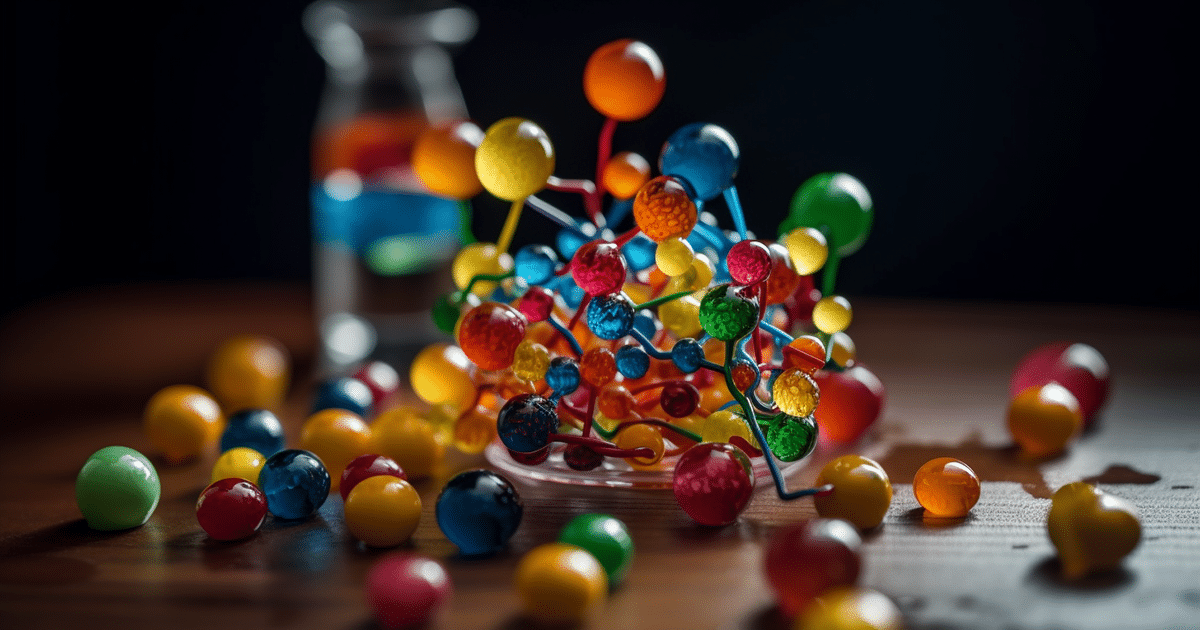
List Of THC Compounds (With Acronyms)
- 10-oxo-delta-6a-tetrahydrocannabinol, (OTHC)
- Delta-8-tetrahydrocannabinolic acid, (Δ8-THCA)
- Delta-8-tetrahydrocannabinol (d8THC, Δ8-THC)
- Delta-9-tetrahydrocannabinol (d9THC, Δ9-THC)
- Delta-9-tetrahydrocannabinol-C4 (THC-C4)
- Delta-9-tetrahydrocannabinolic acid A (Δ9-THCA, THCA-C5)
- Delta-9-tetrahydrocannabinolic acid B (Δ9-THCB, THCA-B)
- Delta-9-tetrahydrocannabiorolic acid, (Δ9-THCA-C1, THCA-C1)
- Delta-9-tetrahydrocannabinolic acid C4, (Δ9-THCA-C4, THCA-C4)
- Tetrahydrocannabinol(−)-cis-Δ (THC-C5)
- Delta-9-tetrahydrocannabiorcol (Δ9-THCO-C1)
- Delta-9-Tetrahydrocannabiorcolic acid A (THCOA)
- Delta-9-tetrahydrocannabivarin (THCV)
- Delta-9-tetrahydrocannabivarinic acid A (THCVA)
- TriHydroxy-delta-9-tetrahydrocannabinol (TRIOH-THC)
- Delta-10-tetrahydrocannabinol (D10THC, Δ10THC)
- Tetrahydrocannabiphorol (THCP)
- THC-O Acetate (THCO)
- Hexahydrocannabinol (HHC)
The Strongest Types of THC
The following is a list of cannabinoids that are organized from the strongest (most-potent) to weakest (least-potent). You may click on any of them to learn more:
- THCP (Strongest/Most Potent)
- THC-O (Slightly stronger than Delta-9 with psychedelic effects)
- Delta-9 THC (You are currently on this page)
- Delta-8 THC (2-3 less potent than Delta-9)
- Delta-10 THC
- THCV (Least Potent)
THC Analogs
THC’s complexity lies in its many varieties. All these alternatives, or analogs, have a similar molecular structure with one major difference – the placement of atomic double bonds. This subtle alteration is enough to create vastly different effects when used by consumers!
THC Derivatives
The definition of a derivative cannabinoid, which I will paraphrase according to Utah’s state legislature.
Derivative cannabinoids are chemical compounds, enabled through man-made processes that use existing cannabinoid compounds to create new compounds.
With each derivative, the atomic structure changes, and if the derivative can associate with the ECS (later discussed in this article) it could offer a unique potential for medical and therapeutic applications.
In a brief summary, THC Analogs are naturally-derived from cannabis plant material, and THC Derivatives are man-interfered/man-made.
How Delta-THC Molecules Get Their Numbers
Have you ever wondered why Delta-THC cannabinoids have numbers associated with it? Ie. Delta-8, Delta-9, Delta-10.
A lot of people might not pay attention to this subtle common characteristic but in regards to THC, it’s kind of important or at least, very cool to know.
It’s time to take a ride on the magic cannabis school bus, because to answer this question, we’re going to the atomic level to get a closer look at their individual carbon molecules, specifically.
At a microscopic view, each Delta-THC compound has an important double bond associated with its molecule, and based on where this double bond is located, is how each THC-type received their number.
- Δ8-THC has a double bond on the 8th carbon
- Δ9-THC has a double bond on the 9th carbon
- Δ10-THC has a double bond on the 10th carbon
See? I told you! It’s kind of cool.
Next up, let’s talk about what THC does and how it interacts with our bodies.
How THC Interacts With The Body
THC, AKA Delta-9 THC, interacts with the endocannabinoid system (ECS) in the human body, specifically with the CB1 receptors, known as cannabinoid receptors, that work within the ECS.
Endocannabinoid System (ECS)
The ECS is broken up into the following three categories:
- Endocannabinoids
- Cannabinoid receptors
- Metabolic Enzymes
Visit the following link to learn more about the Endocannabinoid System.
The Effects of THC After Interacting With The Body
THC is known to have psychoactive and psychotropic effects, meaning it can be mind-activating and state-of-mind altering, respectively.
Once Delta-9 THC binds and interacts with CB1 receptors found on brain cells, THC will stimulate the brain cells to release dopamine; creating feelings of euphoria, relaxation, altered perceptions of time and space, as well as increased appetite.
According to NIDA, THC also interferes with how information is processed in the hippocampus.
Adverse Effects OF THC
Historically, the use and consumption of Cannabis, which goes hand in hand with the consumption of THC for both recreational use and medical use has been connected to several risks and adverse health effects that you should know about.
- schizophrenia
- psychosis
- impairment
We offer a deep dive into the side effects of THC gummies which covers both the short-term and long-term adverse effects of THC.
It’s not all bad, Delta-9 THC also has some purported medicinal and therapeutic benefits such as reducing nausea and improving pain relief for certain conditions.
THC Benefits: The Possible & The Approved Medicinal & Therapeutic Applications
First and foremost, any information shared here ARE NOT MEDICAL CLAIMS, I am just reporting on the information that is publicly available.
Furthermore, as I share information in this section, please note that I am cover Delta 9 THC, specifically. The reason for this is because each type of THC offers its own unique properties. Their individual atomic structures results in very specific ways on how each type of THC interacts with the body when consumed.
For example, Δ9-THC is very psychotropic, but it’s reported that THCP seems to have 30x stronger psychoactive and psychotropic effects compared to Delta 9. While THCV has little psychotropic effects and also seems to act as an appetite suppressant or stimulant depending on dosage.
As you can see, these are all THC molecules, but each with their own effects and benefits. Long story short and for sincere clarity, any “THC benefit” or potential “medicinal/therapeutic application” listed in this section should be automatically insinuated as a Delta-9 THC reference.
Approved THC Products For Medicinal Uses & Treatments
- Epidiolex
- Marinol and Syndros, which contain dronabinol (synthetic THC)
- Cesamet, which contains nabilone (a synthetic substance similar…
The terpenes in cannabis.
Check out this Systematic review from the British Journal of Pharmacology. They mention all of the following but much more explicit in detail:
- nausea and/or vomiting
- Dealing with low appetite
- dronabinol (look up study)
- epilepsy
- chronic pain
- anxiety
- sleep
- dry mouth
- red eyes
- increased heart rate
- overall mental health
If this information interests you, please continue learning our article on The Benefits Of THC Gummies.
Benefits of CBD & THC Combined
When combining CBD products with THC products, studies show that it may be beneficials in the management of symptoms of chronic pain relief.
You see the potential benefits, but are there effects of marijuana on the human body and brain?
Most Popular THC Products & Supplements In 2023
Back in the day, people had two methods on how they would consume THC; smoking marijuana flower buds and infusing THC into oils and foods. In 2023, the THC product market is vastly more advanced.
Based on the number of online searches and national volume of dollars spent per product, the following are the most popular THC products in 2023:
- THC Gummies
- THC Vapes
- Medical Cannabis Flower
- Other THC Edibles (lollipops, brownies, cookies, etc)
- THC Oils/THC Tinctures
The Notable Differences Between Delta-8 THC & Delta-9 THC
There are a few things that make these two differ from each other so lets take a look at each one.
- The psychotropics effects of D8 THC compared to its more potent counterparty D9 THC is that delta-8 THC boasts a subtler high experience ranging 2-3 times milder.
- At the atomic level, Delta 8 THC has a double bond found at the 8th carbon instead of 9th carbon like Delta 9 THC.
- Delta-8 THC has earned the nicknames ‘diet weed‘ and ‘marijuana lite‘, due to its scientifically backed difference in potency compared to Delta-9.
- Delta 8 THC molecules have a lower affinity to CB1 receptors in comparison to Delta 9 THC molecules.
- There is less D8 available than D9 at the time of harvesting a cannabis plant. Specifically depending on the cultivar, the average potency of delta 8 is less than 1% and delta 9 THC being somewhere around 15%.
- Delta 8 THC molecules are only NATURALLY available by the degradation of Delta 9 THC molecules. Without Delta 9, Delta 8 would not exist.
Popular THC Timeframes
Here are three important topics that we’ve dedicated individual articles to that we recommend reading. If you’re interested in learning the THC timeframes of specific questions that we get all the time, below I’ll introduce each one and offer a link for your convenience.
How Long It Takes For THC Effects To Kick In
You’re about to partake in a brand new experience with one of the latest THC products on the market for the first time. It could be a THC tincture, THC Beverage, THC capsule, Marijuana Strain (proper term = cultivar), or our personal favorite, a THC gummy, and now you want to know the onset time of when euphoria is supposed to kick in. If you find yourself in this category, we recommend the following for a clear look at How Long Do Edibles Take To Start Working?
How Long The Effects Of THC (High) Will Last
Perhaps you are planning on taking a THC gummy, brownie, or any other edible for the first time or maybe you’re already super stoned and you are worried about how long the high will last, either way, this article is for you – How Long Do The Effects Of Edibles Last?
How Long THC Will Stay In Your System
As the THC product industry continues its growth, more and more consumers are worried about failing their job-required, THC-triggered drug tests, or for any other particular reason. If this is one of your concerns or if you simply want to know how long Tetrayhydrocannabinol will be detectable after taking a THC edible product whether it be via urine, hair, or sweat test, please read How Long Do THC Edibles Stay In Your System?
Conclusion
With the right knowledge about phytocannabinoids, and for this article, THC specifically, you can make an informed decision about which THC product would be best suited for your needs; whether it be recreational or medical in YOUR OPINION.
Ultimately though, all forms should be approached with caution since they all have potential risks associated with them due to their varying levels of potency, age on the market, or lack of authoritative research on the specific THC-type of product in question.
Speak to a medical professional before considering to add THC to your diet and as always, ENJOY RESPONSIBLY!
References
All informational sources and references were citied throughout the article, any additional sources not cited can be found below:
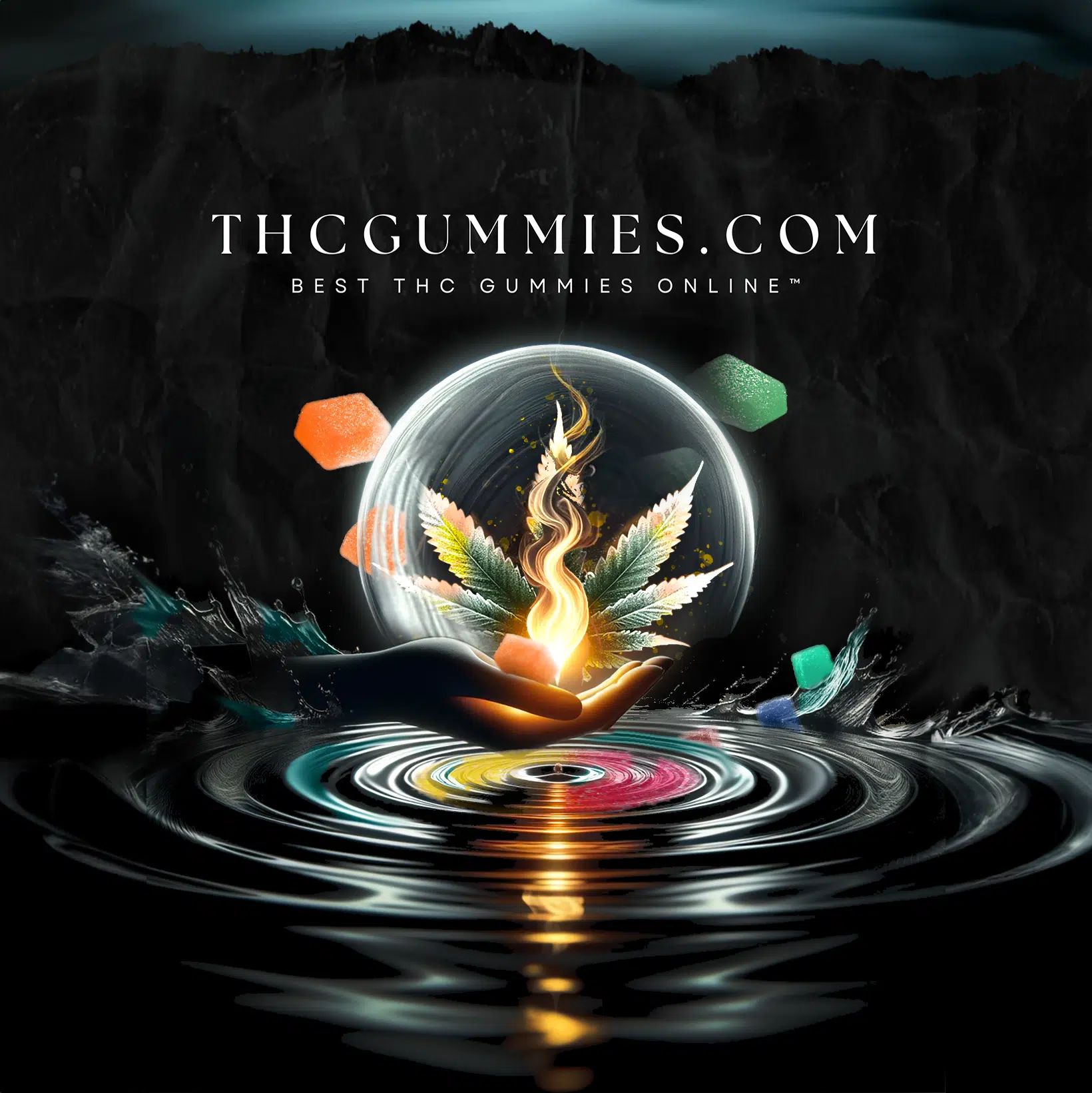
If this article sparked a new insight, pass the flame…
LET’S IGNITE RIPPLES OF CANNABIS WISDOM.
Be the catalyst for someone’s breakthrough moment.
SHARE ON SOCIAL MEDIA

Looking For Something Else?

